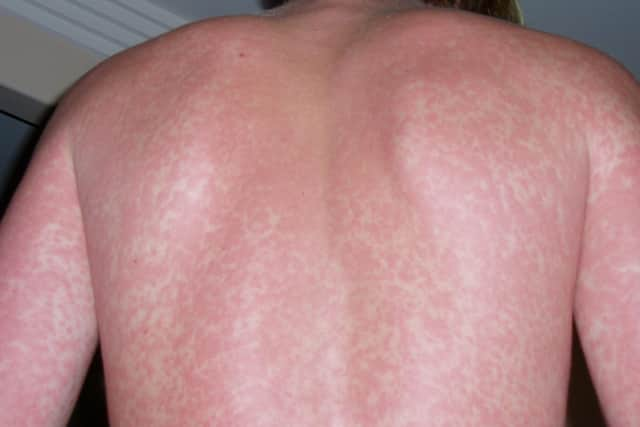Health chiefs urge parents to help reduce chickenpox, scarlet fever, diarrhoea and vomiting, and Covid-19 as cases rise


The team has starting to see trends in rising cases of infection related to increased socialising outside of school.
Current infections circulating in the community and on a national level, particularly in younger children, are: Chickenpox, scarlet fever, diarrhoea and vomiting, and Covid-19.
Advertisement
Hide AdAdvertisement
Hide AdThe team is recommending those with symptoms or signs of the above infections to stay at home and away from work, in line with NHS advice – and inform the setting or workplace as soon as possible.


East Riding of Yorkshire Council’s public health nurse consultant Zoe Stevens, said: “It is really important that parents and carers are aware of the early symptoms for Covid-19 and the common infections we have seen rising cases of in recent months, particularly in younger children.
“We encourage people to familiarise themselves with the guidance on the NHS website and speak to their GP or call 111, if they are worried about unusual symptoms.
“With some cases of Covid-19 in children across the East Riding for example, we have seen instances where both parents and schools have assumed a child has a straightforward stomach bug, but where they have been able to test, it’s actually been quite a common indicator for Coronavirus – so if in doubt it’s best to keep them at home for 48 hours and until they feel better.
Advertisement
Hide AdAdvertisement
Hide Ad“With the schools now broken up for the summer, we ask residents for support during the school holidays to keep children out of childcare and holiday clubs when they have a high temperature or symptoms of chickenpox or scarlet fever, even in the early stages, as this can be the most infectious stage.
“We need to keep everyone in the community safe from infectious diseases, particularly respiratory illness – so whether you are at home, on holiday or if you are running a holiday club or group in the community, please remember the basics of infection prevention – ventilate; encourage regular hand washing, especially before meals or preparing food; don’t forget to have tissues on hand for coughs and sneezes, and provide covered bins.
“If your child missed any NHS vaccines during the pandemic, such as their pre-school booster, contact your GP – it is never too late to have it.”